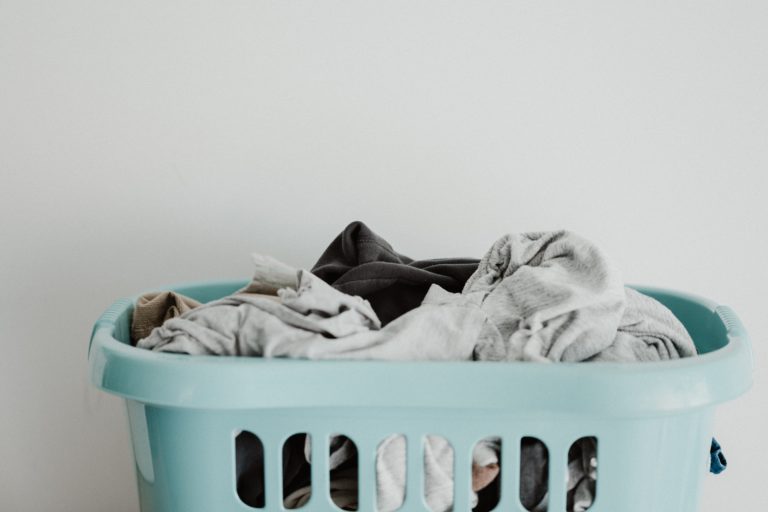By Emily Stimpson Chapman
Emily Stimpson Chapman is an award-winning Catholic author of over a half-dozen books, including Hope to Die: The Christian Meaning of Death and the Resurrection of the Body, co-authored with Scott Hahn; The Catholic Table: Finding Joy Where Food and Faith Meet; These Beautiful Bones: An Everyday Theology of the Body; and The Catholic Girl’s Survival Guide for the Single Years. She also is the editor of the high school faith formation series Formed in Christ and the author of numerous studies for the women’s ministry Endow. Chapman lives in Pittsburgh with her husband, Chris, and their three young children.

Dear Emily,
At the end of our days, the Catholic Church teaches that every human person must reckon with the same realities. She calls these the “Four Last Things”: Death, Judgement, Heaven, and Hell. We all will die. We all will meet Christ the Judge. And we all will enter into the eternity which we freely chose through our actions in the world.
I don’t know when my last days will be. I don’t know when I’ll need to reckon with these realities. But I’ve been thinking a great deal about them lately—not so much about death or Heaven or Hell exactly, but more about how the relationships and attitudes we cultivate now, in this life, prepare us for this reckoning. What equips us to face death with courage and grace? What virtues can help us live now in a way that anticipates the eternity we desire? How do we see ourselves when we stand before Christ?
These are big questions, and I’m still wrestling with them. I’ll try to share what I’m thinking, though, in these last few letters to you. I’ll start today by talking about my laundry room.
Not what you were expecting, right?
It’s true. Laundry rooms don’t usually come up in discussions about the end of all things. Unless it’s the end of all baby socks. Not the end of life or life as we know it, though. Nevertheless, my laundry room is indeed helping me answer one of the great questions of the ages: How, in light of our death, do we live?
I think the answer is to organize your laundry room. Or clean your office. Or feed your children dinner.
This sounds like nonsense, doesn’t it? There’s an election coming up that very well could tear this country apart. There’s a pandemic raging that could take my husband, parents, or another loved one away from me. Our country is plagued by intractable problems such as abortion, human trafficking, the opioid crisis, and racism. And I’m telling you that people need to clean up their laundry rooms.
Well, not all people. But I do. Mine’s a mess. It’s not even really a laundry room—more of a corner in the mudroom off our kitchen. It’s barely working for our family now, and what I haven’t told you yet is that we may be welcoming another baby in the spring: Toby’s biological sibling. It’s a super high-risk pregnancy, and one hundred things could go wrong before April, so who knows what will happen. But if a new baby shows up, I need my laundry room to function better. My family needs my laundry room to function better, too, if for no other reason than it’s making me insane, and an insane Mama is not a good Mama.
The Venerable Catherine Doherty, who was herself a wife and mother, wrote about the importance of doing “the duty of the moment,” and that’s what my laundry room is for me. It’s my duty of the moment. It’s part of the work that Jesus has given me, at this moment in time, as a wife and mother. I am the maker of this home. And feeding my people, clothing my people, and preventing babies from pulling laundry racks down on top of themselves aren’t just items for me to check off on a to-do list; they’re my path to holiness. Doherty went on to explain:
The duty of the moment is what you should be doing at any given time, in whatever place God has put you. You may not have Christ in a homeless person at your door, but you may have a little child. If you have a child, your duty of the moment may be to change a dirty diaper. So you do it. But you don’t just change that diaper, you change it to the best of your ability, with great love for both God and that child. . . . There are all kinds of good Catholic things you can do, but whatever they are, you have to realize that there is always the duty of the moment to be done. And it must be done, because the duty of the moment is the duty of God.
Your duty of the moment is different than mine. You could have a roommate come home this evening who is upset about a breakup. If so, then the duty Jesus is presenting to you in this moment is to listen to your roommate. And not to half listen to her while you wait to talk about your own day, but to give her your undivided and loving attention, as if you were listening to Christ Himself.
Or maybe you’re planning a conference at work. If so, instead of wasting time online waiting for Jonah Goldberg to post his latest story on the Florida recount, make the phone call to the hotel to confirm the number of reservations that have been made and get the menu to the caterer. Those are your duties of the moment, which you need to do like you are planning that conference for Jesus Christ.
One of the reasons the world has gone so mad is because many of us aren’t doing the duty of the moment. Instead of playing with our children or taking a meal to a new mom or reading the book for class or mowing our yard, we’re arguing with strangers online. We’re not loving the person in front of us; we’re berating some person who lives 1800 miles away and whom we’ve never met in real life. We’re fretting about the faults of people we don’t know, about problems we can’t control, about things we don’t understand, and we’re neglecting to do the work Jesus has asked us to do for Him, in the present moment, with the people who are right in front of us.
That’s not a way to live. It’s not a good way to prepare for death either. The saints are clear on this one. Along with Catherine Doherty, there is a veritable chorus of them singing the praises of growing in holiness by simply doing your present duty with love, from St. Thérèse of Lisieux and her “little way” to Venerable Fulton Sheen, who taught that “motive is what makes the saint.” He continued:
The typist at the desk working on routine letters, the street cleaner with his broom, the farmer tilling the field with his horses, the doctor bending over the patient, the lawyer trying a case, the student with his books, the sick in their isolation and pain, the teacher drilling her pupils, the mother dressing the children—every such task, every such duty, can be ennobled and spiritualized if it is done in God’s name.”
There is a time and a place for thinking about the problems of the world. There is a time and a place for voting and marching and discussing current events with friends. At times, those are the duty of the moment. But most of the time, it’s washing the dishes, paying your bills, or calling your mother. It’s fulfilling the duties of your vocation, whether as a single woman or a married mother of two with another on the way.
Focus on the duty of the moment, Emily. When life feels out of control, when the world seems to be breaking apart, when worries about the future consume you and you feel like there’s nothing you can do to make a difference, focus on what’s immediately in front of you. Do the duty of the moment. Do your work. Love your people. Change what you can. Invest your time and your energy in the responsibilities God has entrusted to you, not the ones He hasn’t. See Jesus in Becket as you wipe his bottom and Toby as you dress him for the day and Chris as you send him off to work and your neighbor as you wave hello. Be fully present, fully attentive, fully aware, doing everything you do for Jesus Christ.
In the end, God and the world are both better served by you organizing your laundry room, with great attention and great love, than by you fretting about people and things you can’t control. And when you live like that, serving in each moment, loving in each moment, thinking of Christ in each moment, my guess is that death becomes just another moment—a moment where you do your duty and go home to the One who loves you.
Blessings,
Emily
You Might Also Like
Letters to Myself from the End of the World is both personal and practical. In letters to her younger self—but also to all who are struggling with a hurting Church and World—Emily Stimpson Chapman reflects upon sin and grace, the Church’s sacraments and saints, scandals and injustice, social media and prayer, suffering, adoption, motherhood, and much more.


